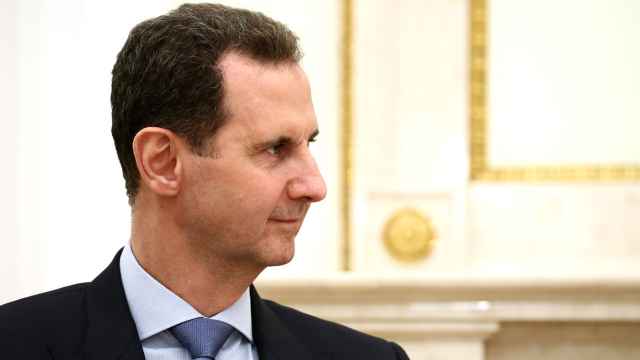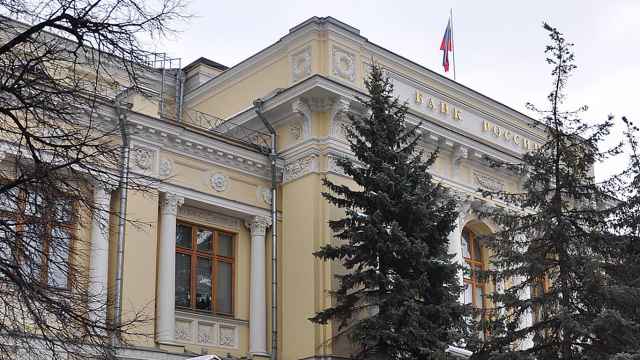BRUSSELS — A majority of Europeans and Americans strongly oppose their countries intervening militarily in Syria's 30-month-old civil war, according to a transatlantic poll published Wednesday.
"Transatlantic Trends," an annual survey of public opinion in the U.S. and Europe, also found that China's image in both continents was deteriorating and most Europeans did not want to see Beijing take strong leadership in world affairs.
The survey, by the German Marshall Fund of the United States, a U.S. think tank that promotes cooperation between North America and Europe, and the Compagnia di San Paolo, an Italy-based private foundation, measured public opinion in 11 European Union countries, Turkey and the U.S.
The poll found 62 percent of Americans and 72 percent of Europeans believed their countries should avoid military intervention in Syria's civil war.
Only 30 percent of Americans and 22 percent of Europeans felt their countries should intervene in Syria.
In Turkey, which borders Syria, 72 percent said their country should stay out, while 21 percent favored intervention.
In all regions, the survey found a hardening of attitudes against outside intervention, compared with last year.
Opposition to Western intervention in Syria was reflected in the parliamentary defeat British Prime Minister David Cameron suffered last month, when he sought approval for a motion that would have authorized military action in principle.
The U.S. and Russia agreed last Saturday on a proposal to eliminate Syria's chemical weapons arsenal, averting the possibility of any immediate U.S. military action.
On Iran, Europeans and Americans said economic sanctions were the best way to prevent the acquisition of nuclear weapons.
Very few Europeans, but 18 percent of Americans, backed military action against Iran when presented with a choice of options ranging from offering economic incentives to accepting that Iran could acquire nuclear arms.
Respondents who chose a non-military option for dealing with Iran were asked if they would favor military action if peaceful options failed. In that scenario, 48 percent of the Europeans and 64 percent of the Americans favored the use of force.
Western powers suspect Iran's nuclear program is aimed at developing a nuclear weapons capability, although Tehran insists the program is peaceful.
The survey found that China had a poor image in the West. Sixty percent of Europeans and 58 percent of Americans had an unfavorable view of China, both higher than last year.
The U.S. and the EU have both engaged in high-profile trade disputes with China over the past year.
Sixty-five percent of Europeans, 72 percent of Turks and 47 percent of Americans said it would be undesirable for China to take strong leadership in world affairs.
Europeans, Americans and Turks saw China as more of an economic threat than an economic opportunity. Forty-nine percent of Americans also viewed China as a military threat, although most Europeans and Turks disagreed.
Russia also had an image problem. Forty-six percent of Americans viewed Russian global leadership as undesirable, as did 65 percent of Europeans and 67 percent of Turks. Fifty-nine percent of Americans, 62 percent of Europeans and 68 percent of Turks had a negative view of Russia.
Countries surveyed were France, Germany, Italy, the Netherlands, Poland, Portugal, Romania, Slovakia, Spain, Sweden, Britain, the U.S. and Turkey. About 1,000 people were polled in each country between June 3 and July 2.
A Message from The Moscow Times:
Dear readers,
We are facing unprecedented challenges. Russia's Prosecutor General's Office has designated The Moscow Times as an "undesirable" organization, criminalizing our work and putting our staff at risk of prosecution. This follows our earlier unjust labeling as a "foreign agent."
These actions are direct attempts to silence independent journalism in Russia. The authorities claim our work "discredits the decisions of the Russian leadership." We see things differently: we strive to provide accurate, unbiased reporting on Russia.
We, the journalists of The Moscow Times, refuse to be silenced. But to continue our work, we need your help.
Your support, no matter how small, makes a world of difference. If you can, please support us monthly starting from just $2. It's quick to set up, and every contribution makes a significant impact.
By supporting The Moscow Times, you're defending open, independent journalism in the face of repression. Thank you for standing with us.
Remind me later.





